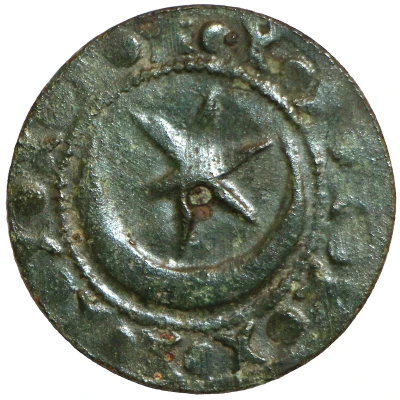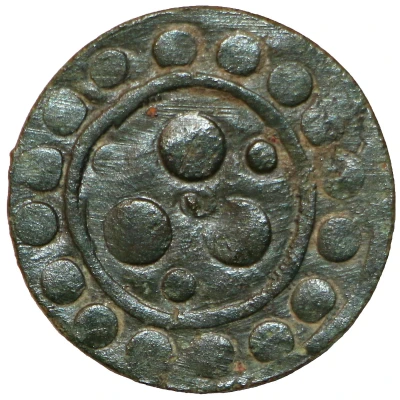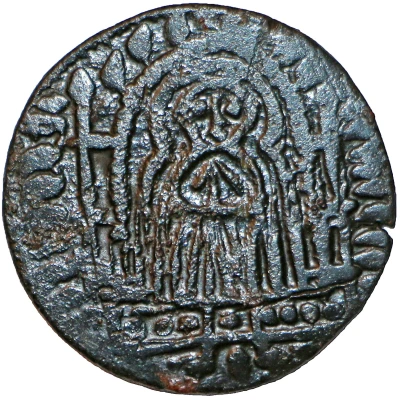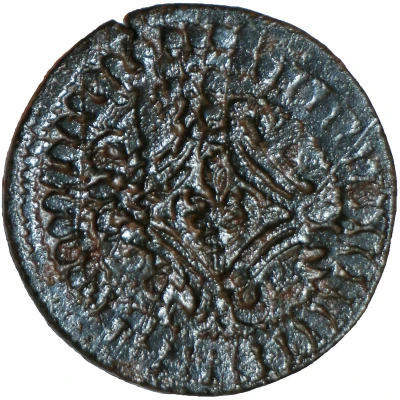
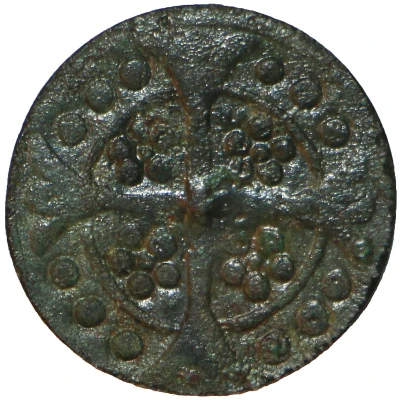

© John Conduitt (CC BY-SA)
Sterling Bust token Mernick Series 2d ND
| Copper | 3 g | 20 mm |
| Location | England (United Kingdom, British Overseas Territories and Crown Dependencies) |
|---|---|
| King | Edward II (1307-1327) Edward III (1327-1377) |
| Type | Utility items › Counter tokens |
| Years | 1310-1335 |
| Composition | Copper |
| Weight | 3 g |
| Diameter | 20 mm |
| Shape | Round (irregular) |
| Technique | Hammered |
| Orientation | Variable alignment ↺ |
| Demonetized | Yes |
| Updated | 2024-11-14 |
| Numista | N#345726 |
|---|---|
| Rarity index | 97% |
Reverse
Long cross patonce with six-pellet clusters in angles and border of pellets.
Comment
English Jettons were made during the reigns of Edward I, II and III. This type (Mernick Series 2d) is thought to have been minted at London after the mint was moved to the Tower. They were made using the punches from official pennies from Fox Classes 11 to 15 (1310-1335). However, they do not generally have legends.The punch mark is a characteristic of English jetons. It is believed to have been made to centre the disc during flan production.
Reckoning Counters (Jetons) were used in the calculation of accounts. They never show a mark of value because, unlike tokens, jettons merely represent a value, by means of their position on a reckoning table. They were in common use before Arabic numerals were adopted in Europe.
